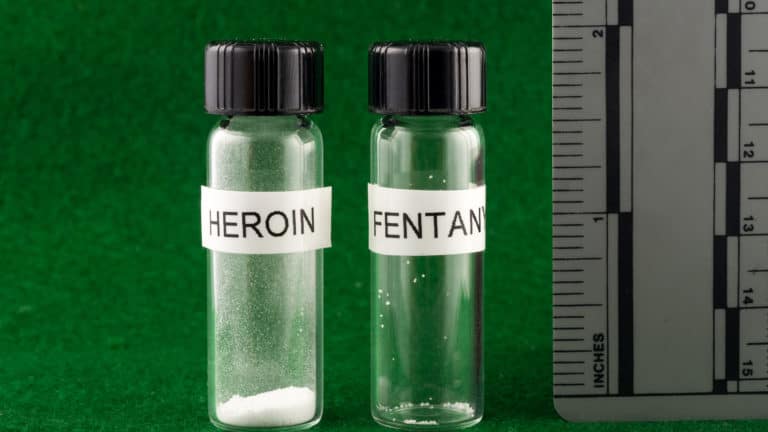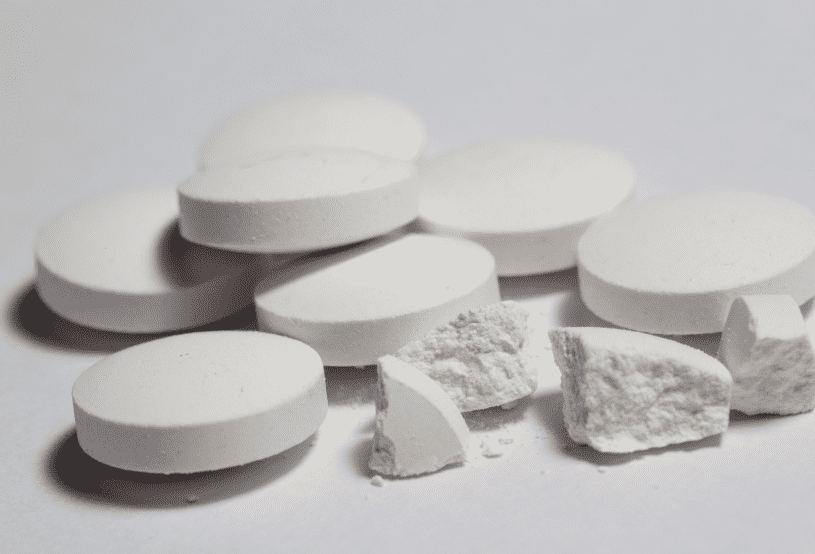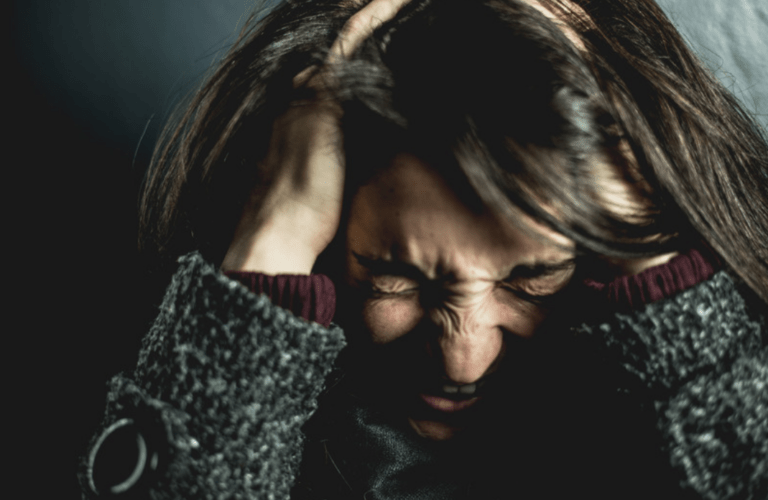What Is Fentanyl-Laced Weed?
Fentanyl-laced weed is another way to describe marijuana that has been contaminated with fentanyl. Fentanyl is a powerful synthetic opioid pain reliever, 80 to 100 times more potent than morphine. It typically comes in the form of a powder and is without smell, so it may be completely undetectable when mixed with marijuana. When fentanyl is laced with drugs like cocaine or heroin, which also often come in powder form, it can be impossible for the naked eye to detect the presence of fentanyl. Taking drugs—particularly something known to have low toxicity like weed—without being aware that they are laced with a drug as potent as fentanyl can lead to serious consequences, such as overdose and death.
In recent years, fentanyl has contributed largely to the opioid crisis. In 2015, fentanyl-related deaths only made up 1% of all overdoses in the county, compared to 40% in 2020. From 2011 to 2015, deaths from heroin overdoses began to increase rapidly and were actually more common than those from fentanyl and other synthetic opioids. However, beginning in 2015, deaths from fentanyl overdoses began to increase exponentially, while deaths from heroin overdoses began to slightly decline. Recently released data by the CDC show that drug overdose deaths reached a record high of 93,331 in 2020.
Roughly 48.2 million people, or about 18% of Americans, used marijuana at least once in 2019. As marijuana is the most commonly used federally illegal drug in the United States, a rise in fentanyl-laced weed is concerning.
Fentanyl-Laced Weed: A Rising Concern
During the fall of 2021, a flurry of reports and news articles began to circulate about individuals being treated for drug overdoses after smoking marijuana. In one case, an individual in Vermont had experienced an apparent overdose after smoking weed and had to be treated with CPR and multiple doses of Narcan.
When police tested the weed in the person’s possession, they discovered it was spiked with fentanyl. Several weeks later in the area, police announced that three individuals had been arrested for dealing what they suspected was fentanyl-laced weed. However, after testing the larger samples of marijuana, the Drug Enforcement Agency announced that no fentanyl was detected.
Brian Boyle, an agent of the Drug Enforcement Agency (DEA) made a public statement, “In the interest of public safety and to address the growing concerns of the citizens of Vermont, the DEA can confirm that no fentanyl was detected in the marijuana seized during the investigation.” But he did not stop there— the DEA then took the opportunity to emphasize that this is still a potential threat. He continued, “We’d like to take this opportunity to reinforce the public safety message that any drugs not purchased or obtained from a licensed and accredited medical facility are illegal, dangerous, and potentially lethal.”
Officials in Connecticut have reported that they have linked around 40 opioid overdoses in the state since June 2021 to contaminated cannabis. However, there are skeptics who believe some individuals are lying to the police to cover up their opioid use, as states like Vermont have legalized marijuana but not opioids. Others take this as an opportunity to advocate for marijuana to be legalized and regulated, to ensure quality and safety of the drugs being taken.
In general, reports of overdoses from fentanyl-laced drugs have been skyrocketing the past year. This is a significant concern in an already overwhelming opioid epidemic. Though reports of fentanyl-laced weed are more recent, the DEA has already issued a public statement to warn people about fentanyl-laced pills. In 2021 alone, the DEA has seized 9.5 million counterfeit pills laced with fentanyl and methamphetamine, which is more than the last two years combined. The counterfeit pills are illegally manufactured by extensive drug networks and are made to look identical to prescription medications such as Oxycontin, Adderall, Percocet, Vicodin, and Xanax. The pills are often sold on the black market through social media and e-commerce platforms.
Because fentanyl has already infiltrated huge swaths of the illicit drug market, it is not a far-fetched idea that it would reach marijuana as well. The rise of fentanyl-laced weed is particularly concerning considering its decriminalized and legalized status in many areas, as well as its low likelihood of traditional “overdose.”
Warning Signs and Symptoms of Fentanyl Use
Though some sensations, such as relaxation and drowsiness, can be similar in both fentanyl and marijuana, they are very different drugs with different side effects.
Fentanyl side effects may include:
- Relaxation
- Temporary feelings of euphoria
- A short-term, intense high
- Drowsiness
- Nausea or vomiting
- Confusion
- Sedation
- Trouble breathing
- Unconsciousness
Fentanyl is a nervous system depressant, and when taken in too large of a quantity, it can suppress the respiratory system to the point of ceasing to function, meaning an individual will stop breathing. Other symptoms of a fentanyl overdose may include:
- Low blood pressure
- Limp body
- Cold, clammy skin
- Blue-colored lips and fingernails
- Decreased heart rate
If it is suspected that someone is experiencing an overdose, it is imperative that you call 911 immediately. While you wait for medical assistance, if the individual is conscious, try to keep them calm, comfortable, and conscious. If the individual is having a seizure, remove all objects in the immediate area to prevent further bodily injury.
Once medical professionals arrive, the individual will likely be immediately treated on the scene as needed, before being taken to the hospital for further stabilizing treatment and observation.
In the event that an individual survives an overdose, it is extremely important that they seek professional drug use treatment. If an overdose occurs, it will likely occur again if the substance use is left untreated.
Need Drug Abuse Treatment? We Can Help
It is entirely possible to overcome addiction. Thousands of individuals have done so, with appropriate treatment, support, and commitment to recovery. If you are considering seeking addiction treatment for yourself or a loved one, rest assured that help is widely available and recovery is possible. If you have questions or concerns, call us today. We at Asheville Recovery Center are experienced in substance abuse and addiction, and we are here to help.








